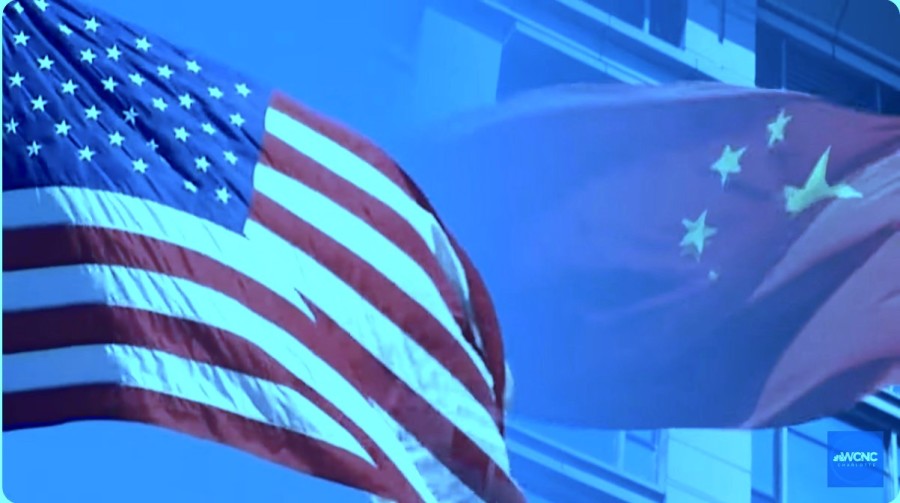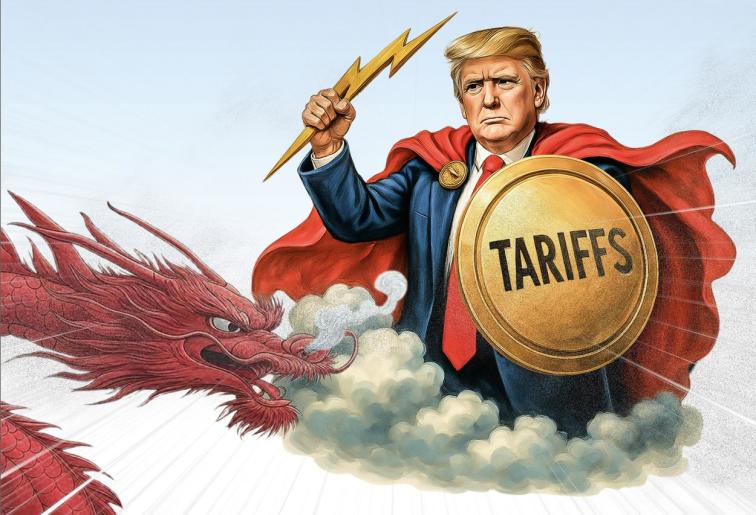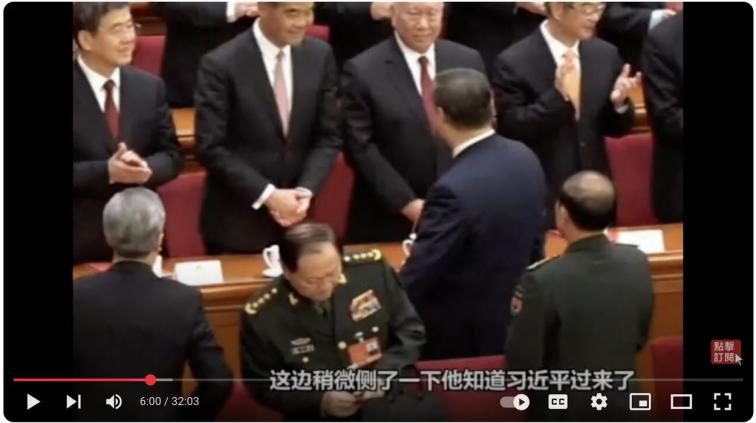U.S.-China Confrontation. (Video screenshot)
[People News] Following the US-China-Switzerland talks that resulted in a trade agreement, some enthusiastic netizens, often referred to as 'little pinks', claimed, "China won, and the United States has knelt down."
Former editor-in-chief of the Global Times, Hu Xijin, took to Weibo to declare: "Today, we have absolutely pushed the Americans back to the '38th parallel'!"
Is this really the case?
Let’s not kid ourselves!
What is the basis for this so-called victory for China?
It boils down to the fact that the tariffs on most Chinese imports to the US have been reduced from 145% to 30%, a temporary ceasefire of 90 days has been established, and trade between China and the US can resume. The previous high tariffs had nearly pushed the Chinese economy to its limits, so it can finally take a breather.
What else has China gained? Nothing at all.
In contrast, the United States has gained significantly more than China!
First, China's tariffs on US goods have been slashed from 125% to 10%. The reduction in tariffs by both countries is reciprocal. If we are to talk about winning, it is a win-win situation.
Secondly, China has agreed to open its market to the United States.
Chinese Vice Premier He Lifeng stated at a press conference on the 11th that China is willing to collaborate with the US to explore cooperation potential, expand the cooperation agenda, and increase the benefits of cooperation. He did not provide specific details, but Trump elaborated on this.
On Monday (the 12th), Trump announced that after the US and China reached an agreement to temporarily reduce most tariffs, China has "agreed to open its market." He emphasised that this commitment could be the "most significant outcome" of the high-level trade discussions held in Geneva, Switzerland, over the weekend.
Despite Trump's lack of specific details regarding the content and scope of China's market opening, he told the media before signing the executive order on drug prices at the White House: "We still need to incorporate it into the agreement, but they have already agreed to open the Chinese market."
Reports suggest that China has pledged to increase its purchases of American agricultural products and energy to help address some of the trade imbalance issues.
Thirdly, on the 12th, Trump stated at a White House press conference that China has agreed to halt the flow of the drug fentanyl into the United States; he may engage in dialogue with Xi Jinping this weekend. He also noted that China will be rewarded for its assistance in curbing the fentanyl crisis in the U.S., thereby "avoiding hundreds of billions of dollars in tariffs."
Fourthly, China has committed to rescinding the non-tariff countermeasures it imposed on the U.S. starting April 2. According to Reuters, this includes the following specific actions:
1. Easing of rare earth export controls: As part of the retaliatory measures taken in April, China had previously placed rare earths on the export control list, which restricted key raw materials in the global supply chain. The new agreement mandates that China lift this measure.
2. Suspension of anti-dumping investigations: This pertains to China's anti-dumping investigations against American chemical company DuPont and other U.S. firms.
3. Adjustment of the blacklist: China will remove certain U.S. defense and technology companies from the blacklist that prohibits trade and investment with China. However, the statement only applies to measures enacted after April 2, and the companies blacklisted in March, as well as the anti-dumping investigation against Google in February, are not included in this cancellation.
Moreover, while China has reduced its tariffs on the U.S. to 10%, the 20% tariffs imposed by the U.S. in response to allegations regarding fentanyl imports from China remain unchanged. Consequently, China continues to face a 30% tax rate from the U.S. Additionally, small packages are not exempt, and the existing tariffs on specific Chinese goods like steel and aluminium, which were implemented prior to April, will still be in effect. Thus, the actual concessions made by China regarding tariffs are significantly larger.
Previously, Trump explicitly stated that he would not lower tariffs on China unless substantial concessions were made by China. During the recent high-level talks in Geneva, the U.S. agreed to significantly reduce tariffs precisely because China made the aforementioned concessions.
Did the U.S. make any concessions? Certainly, it did. However, these concessions came only after China made much larger concessions, meaning the U.S. had to pay a price first. Raising tariffs was never Trump's primary goal; it was merely a strategy to compel China to open its market and reduce the trade surplus. Now that this strategy has proven effective, it is only natural for tariffs to be lowered.
Of course, the Chinese Communist Party will not disclose these details to its citizens; it will only propagate the narrative that Trump’s tariff war is faltering and that the U.S. has significantly reduced tariffs on China. Those living in information silos, such as the 'Wumao' and 'Little Pink' groups, will undoubtedly celebrate, proclaiming 'China has won, and the U.S. has knelt down.' But if they were to learn the truth, would they still cheer?










News magazine bootstrap themes!
I like this themes, fast loading and look profesional
Thank you Carlos!
You're welcome!
Please support me with give positive rating!
Yes Sure!